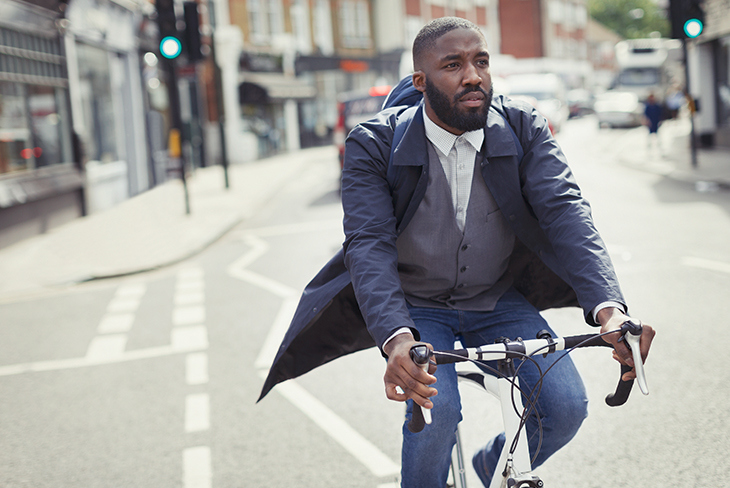Why cycling is good for you

Don’t let age, size or fitness level deter you from pumping up your bicycle tyres, putting on a helmet and enjoying the great outdoors.
The sun is shining, after-work sundowners are calling and the last thing you feel like doing is sweating it out at the gym. Pedalling your way to fitness is the perfect way to get from A to B while toning up, burning kilojoules and being kind to the environment. Cycling also saves cash, is a fun way to spend time with loved ones and you’ll probably get to know your neighbourhood better too.
More bike lanes and urban parks have sprung up over the past few years, making it that much easier to get on your bike. If you’re still not convinced, here are some benefits:
1. Body toning
Cycling is the perfect way to tone your lower body. Lezandré Wolmarans, a biokineticist at the Sports Science Institute of South Africa, says that cycling works your quads, glutes, calves and hamstrings. Bear in mind that the correct seat height is key to uniform toning of both the upper and lower leg. Lezandré’s suggestion is that your seat should sit high enough that your knee bends within a 25–35° angle.
2. Better cognitive performance
‘There is clear evidence to suggest that cognitive performance is directly linked to a physical regimen,’ says biokineticist Luke Saner. ‘Those who exercise regularly show better cognitive performance scores in concentration, memory retention, faster learning, creativity
and stress management.’
3. Social interaction
Lezandré also recommends cycling for the social aspect. ‘We live in a beautiful country, so grab a friend and go riding. The picturesque surroundings will motivate you more than if you were sitting on an indoor bike. Stop for coffee breaks and really just enjoy our magical country.’ The greater the number of people who get on their bikes, the more tolerance and care drivers will take when navigating roads frequented by cyclists.
4. Going green
There’s no denying that cars are responsible for carbon emissions, which contribute to air pollution. This is why Megan Pringle of the Bicycling Empowerment Network suggests cycling as a fun and eco-friendly mode of transport. She says: ‘A bicycle has virtually no carbon footprint, does not contribute to air, noise or water pollution, and emits no greenhouse gases.’
5. Save money
How much money do you spend on transport a week? Cycling is a cheaper, healthier alternative. To begin with, start small and cycle to work one day a week. With the money you save, buy yourself something nice to motivate yourself to keep going.
Excuses, excuses
If you’re prone to talking yourself out of cycling or exercise, here are a few counter-arguments:
‘I’m worried about my safety.’
This is understandable, but don’t let it deter you. Start by riding in a bicycle-designated area to boost your confidence. Once you’re ready to hit the road, avoid peak traffic and always remember to use hand signals to indicate where you’re going. Wear neon colours to assist with visibility, and remember that a helmet is a non-negotiable.
‘I don’t want to be sweaty.’
Slow down, cycle at a moderate pace and carry antibacterial wipes, deodorant or antiperspirant, a towel and a change of clothing. Pick up the pace on the way home instead.
‘I’m too old.’
Age is really just a number. Ask centenarian Frenchman Robert Marchand who, in 2014, broke his own world record in cycling in the over-100 category. If there are enough people to fill that category, then you definitely have no excuse. Adjust your mind-set, get on a bike and start today.
The information is shared on condition that readers will make their own determination, including seeking advice from a healthcare professional. E&OE. Life Healthcare Group Ltd does not accept any responsibility for any loss or damage suffered by the reader as a result of the information provided.

